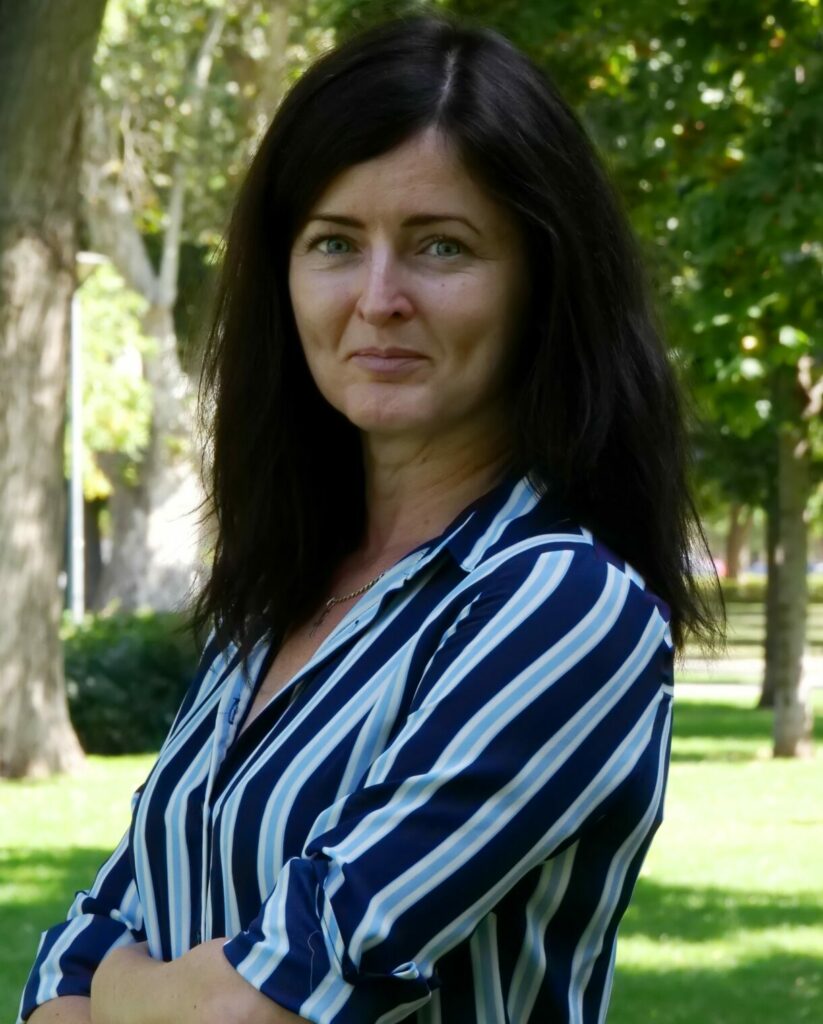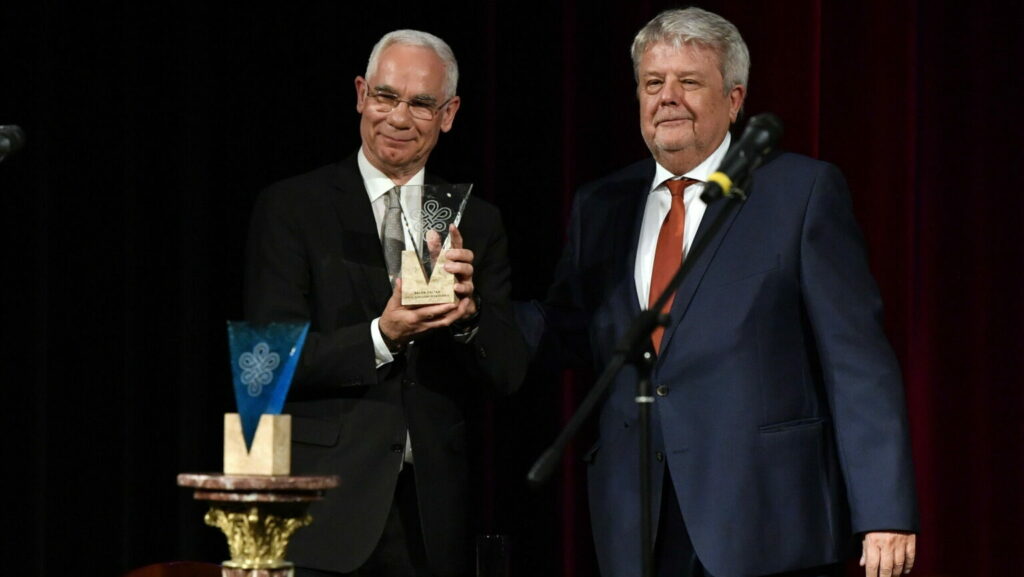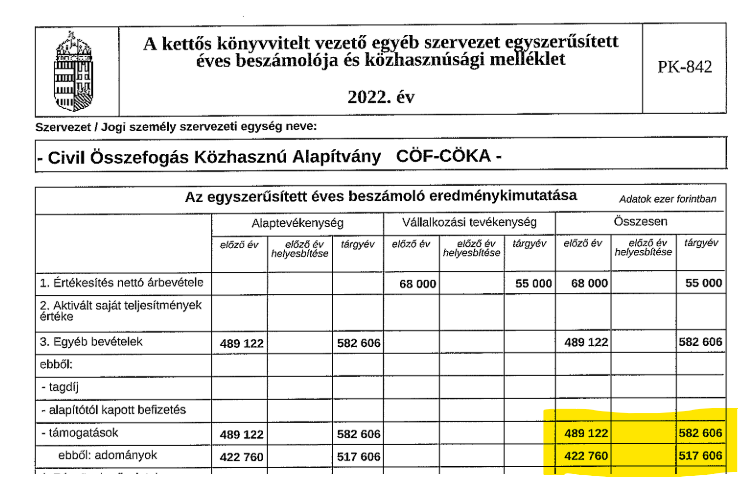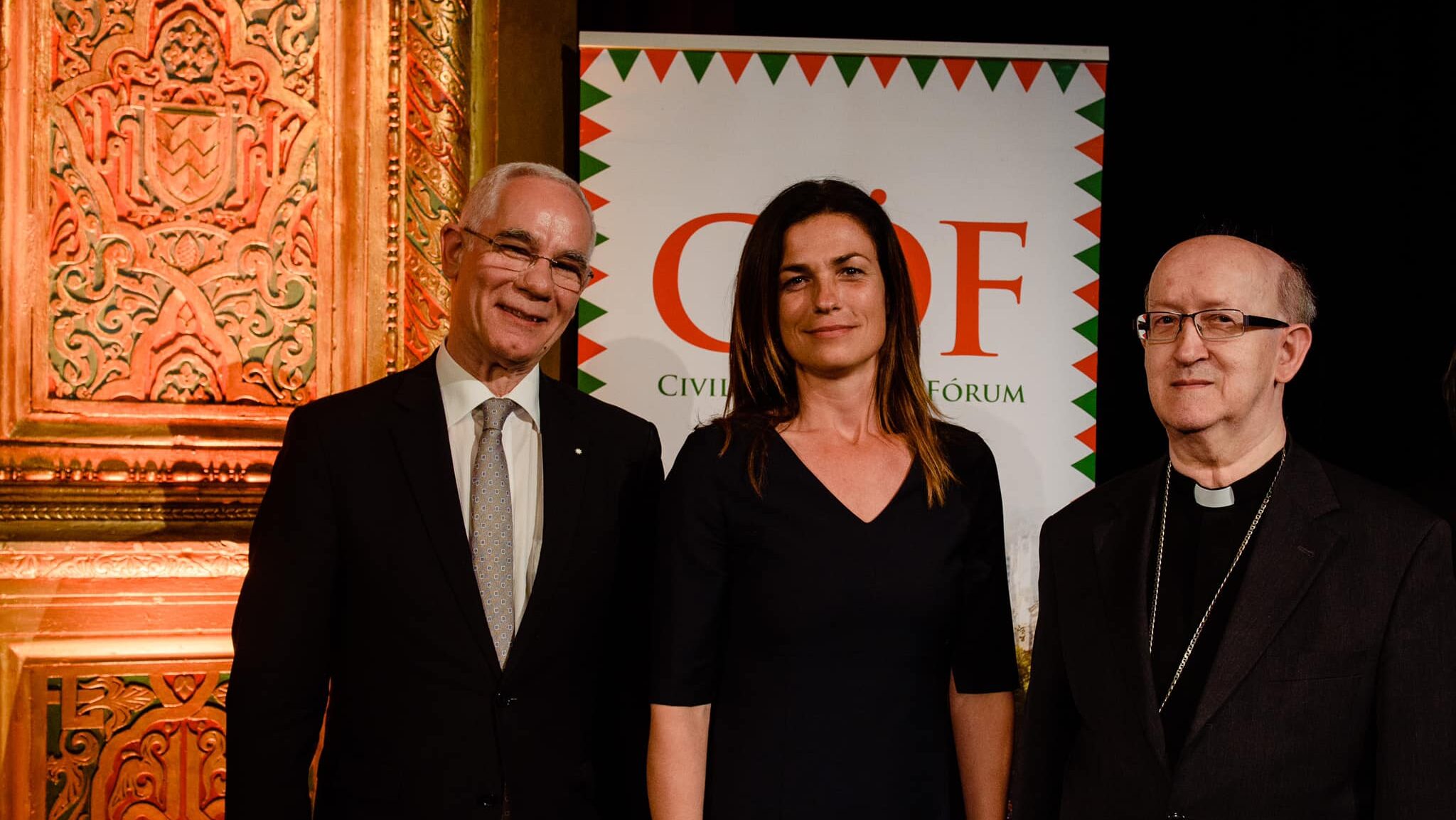The https://english.atlatszo.hu use cookies to track and profile customers such as action tags and pixel tracking on our website to assist our marketing. On our website we use technical, analytical, marketing and preference cookies. These are necessary for our site to work properly and to give us inforamation about how our site is used. See Cookies Policy
The Fidesz party foundation supports CÖF with an annual sum of nearly HUF 70 million
He was tall, dark and handsome, with an air of mystery about him that was enticing to all who crossed his path. Well, he wasn’t really much of that – and the “he” in question is more of an “it”, and the “it” in this case is the CÖF, a pro-Fidesz organization that engages in marches for peace and anti-Gyurcsány campaigns. CÖF is neither tall nor dark or handsome, but it does remain mysterious. The foundation has, for years, failed to publish any documentation about its funders. No fear – Fidesz has released the information instead, which reveals that the ruling party has been supporting CÖF with around HUF 60 to 70 million annually – of public funds.
“Civil Cooperation Forum”, known as CÖF and led by László Csizmadia, perennially lends Fidesz its full-throated support. They organize marches for peace and publish anti-opposition posters and ads – they also like to harass civil service organizations that take a more critical stance against the government.

CÖF regularly holds events under the name “Civil Academy,” but the civil service performed at these events – and indeed, by the organization on the whole – is providing yet another platform for pro-government disciples who pontificate the state’s latest campaign slogans.
The largest CÖF event is the Peace March, where participants march with banners to express their love and support for Prime Minister Viktor Orbán and Fidesz. This year’s Peace March will be held on June 1, and Orbán also spoke at the event.
Naturally, such extensive activity costs money – primarily for the taxpayers. CÖF’s background organization, the Civil Cooperation Public Benefit Foundation (CÖKA), is regularly supported by state-owned companies. In 2016, they received HUF 508 million of public funds from MVM. In 2020, they received HUF 170 million from a subsidiary of Szerencsejáték Zrt., and then HUF 25 million from the Hungarian Development Bank in 2021 and yet another HUF 40 million from Szerencsejáték, who supported them with HUF 70 million in 2022 as well. These are just the contributions we managed to uncover.
CÖF’s financial management – cloudy without a chance of transparency
CÖF takes pride in scrutinizing the financial reports of non-governmental organizations – published, of course, because the law demands it.
The most important part of these mandatory reports is the supplementary annex, which details sources of support. CÖF uses these documents to eagerly accuse organizations of betrayal and treason when they disclose foreign grants.
CÖF risks little retaliation – they upload nothing and disclose nothing. It isn’t because there isn’t anything to disclose – CÖKA’s 2022 balance sheet lists HUF 489 million in support and donations for 2021, and HUF 582 million for 2022. The source of the donations is unknown. Must have fallen from the skies. Grows on trees. Was manifested.
Fun Fidesz Finances
Fortunately, however, the official background organization of the ruling party, the Civic Hungary Foundation (PMA), publishes its financial data very precisely. Naturally, the law also obliges this, as – like every foundation of a party that achieves over 1% in the parliamentary elections – it receives significant budgetary support, or public money.
The amount of state support for party foundations depends on the election results of their party, so Fidesz’ foundation gets the most public money from the state treasury. Financial reports show that, in 2023 it received HUF 1.59 billion, in 2022 HUF 1.53 billion, and in 2021, 2020, and 2019, it received HUF 1.46 billion annually from the state.
According to documents available on the PMA website, the foundation regularly finances the CÖF, giving the following amounts:
In March 2019, HUF 60 million,
Again in the spring of 2020, HUF 60 million,
In May 2021, another HUF 60 million,
In March 2022, HUF 65 million,
In February 2023, HUF 70 million,
And this spring, HUF 75 million.
The total comes out to HUF 390 million over six years. The purpose of the support was the same every year: to support the organizing and implementation costs of CÖKA’s annual “operating expenses and programs”.
So, Fidesz supports CÖF’s lectures, the advertisements against the opposition, the harassing activities against real civil service organizations, and the Peace March shenanigans through the party foundation – and with public money.
The majority of the total budget goes to CÖKA
Of course, compared to the approximately HUF 1.5 billion that PMA receives annually from the central budget, the HUF 60 to 70 million allocated to the CÖF foundation each year doesn’t seem like much. However, reviewing the reports of the Fidesz party foundation reveals that they spend only a minimal amount each year on “support for external organizations,” but a significant portion of it always ends up at the CÖF foundation.
In 2019, PMA distributed nearly HUF 235 million, of which CÖKA received HUF 60 million – almost a quarter of the total budget. In 2020, the Fidesz party foundation allocated HUF 155 million to external organizations, of which more than a third (HUF 60 million) ended up in the pockets of CÖF and CÖKA.
Of the HUF 197 million distributed in 2021, nearly a third went to CÖKA again, while in 2022, out of the HUF 380 million allocated to external organizations, CÖKA received almost a sixth (HUF 65 million), and out of the HUF 331 million distributed in 2023, CÖKA received nearly a fifth from the Fidesz party foundation.
Mutual respect and honors
The Fidesz party foundation, the Foundation for a Civil Hungary (PMA), was established in 2003 by the party to assist and “implement political education for the development of a political culture.”
For the first 17 years, the leader of PMA was Zoltán Balog, until he resigned in January 2021 due to his election as a Reformed bishop. His successor is the former director of the foundation, Ádám Kavecsánszki. The two other members in the three-member board of trustees are László Kövér, the Speaker of the National Assembly, and Gergely Gulyás, the leading Minister in the Prime Minister’s Office.
The long-standing and close cooperation between the Fidesz party foundation and CÖF is well-illustrated every time they mutually honor each other.
PMA awards the Civil Hungary Prize every year to “an individual or community who/which, through their scientific, public, artistic, or charitable activities, has created lasting spiritual and human values, enriched Hungary, the Hungarian people, or one of its communities, contributed to its strengthening within the European community in a credible, professional, and effective manner, and whose activities are characteristic of the civil-Christian-national values community.”
In December 2012, the award was given to the Peace March, which was organized for the first time that year, but immediately three times over – in January, March, and October – by CÖF. The award was presented to László Csizmadia, the leader of CÖF/CÖKA, by Zoltán Balog, the chairman of the PMA board of trustees, who had been the Minister of Human Resources in the government for a few months at that point.
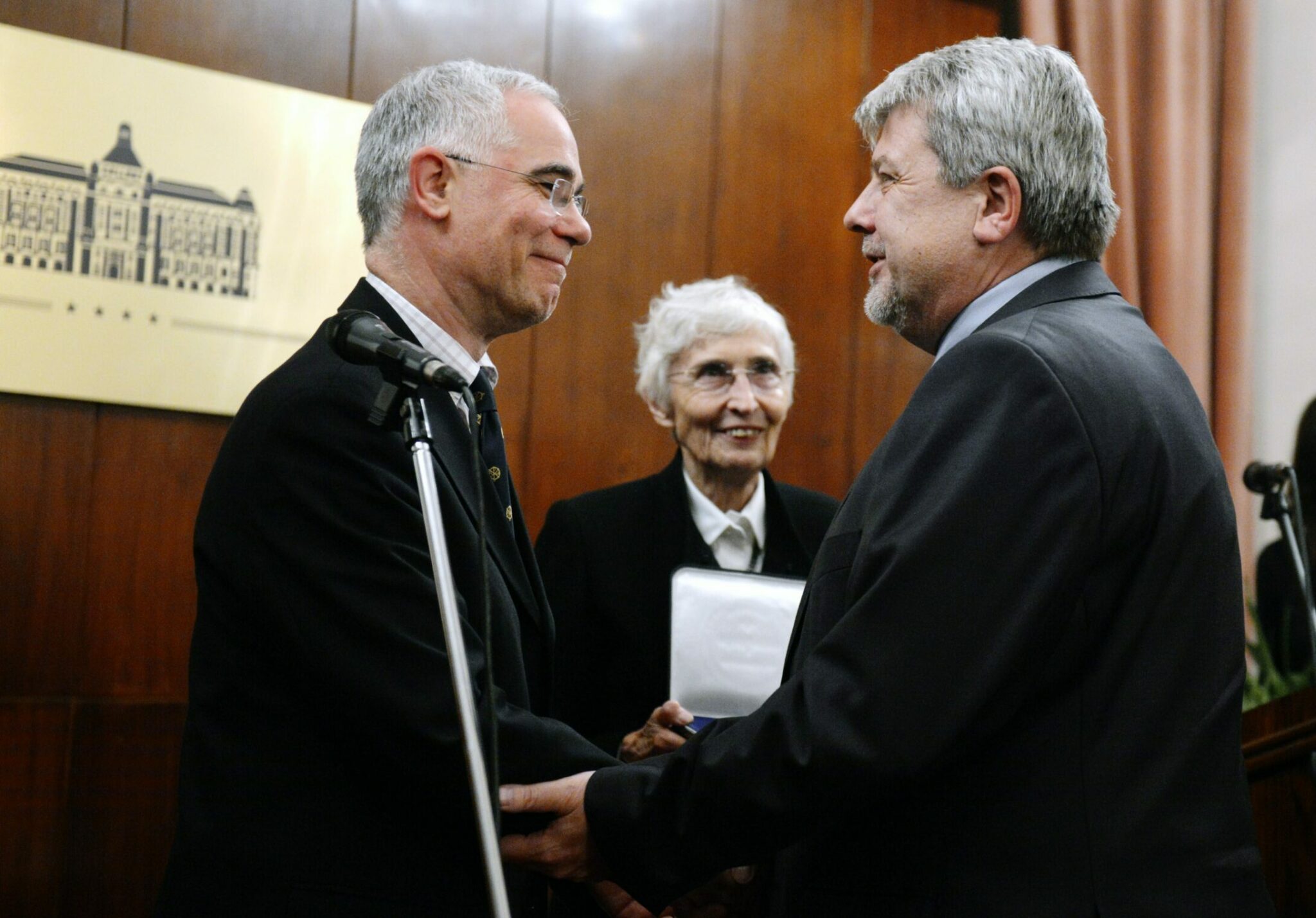
Zoltán Balog, Minister of Human Resources and Chairman of the Board of Trustees of the Civic Hungary Foundation and Dalma Mádl, widow of former President Ferenc Mádl present the Civic Hungary Award to László Csizmadia, organizer of the Peace March at the Hotel Gellért on 21 December 2012 (photo: MTI/László Beliczay)
At the award ceremony, László Kövér stated that with the Peace Marches, “civil Hungary was able to defend its government, the entire country, and democracy,” as well as the principle that “the will of the people cannot be overridden by mercenaries who consider themselves enlightened media intellectuals, nor can it be overridden by oligarchs who consider profit the only real value.”
A few years later, in April 2016, Zoltán Balog, who had been serving as a minister for the fourth year, appointed László Csizmadia to the president of the National Cooperation Fund (NEA) council. NEA is a state program that supports civil organizations from the state budget – and, similar to the Urban Civil Fund, it mainly favors those close to the government.
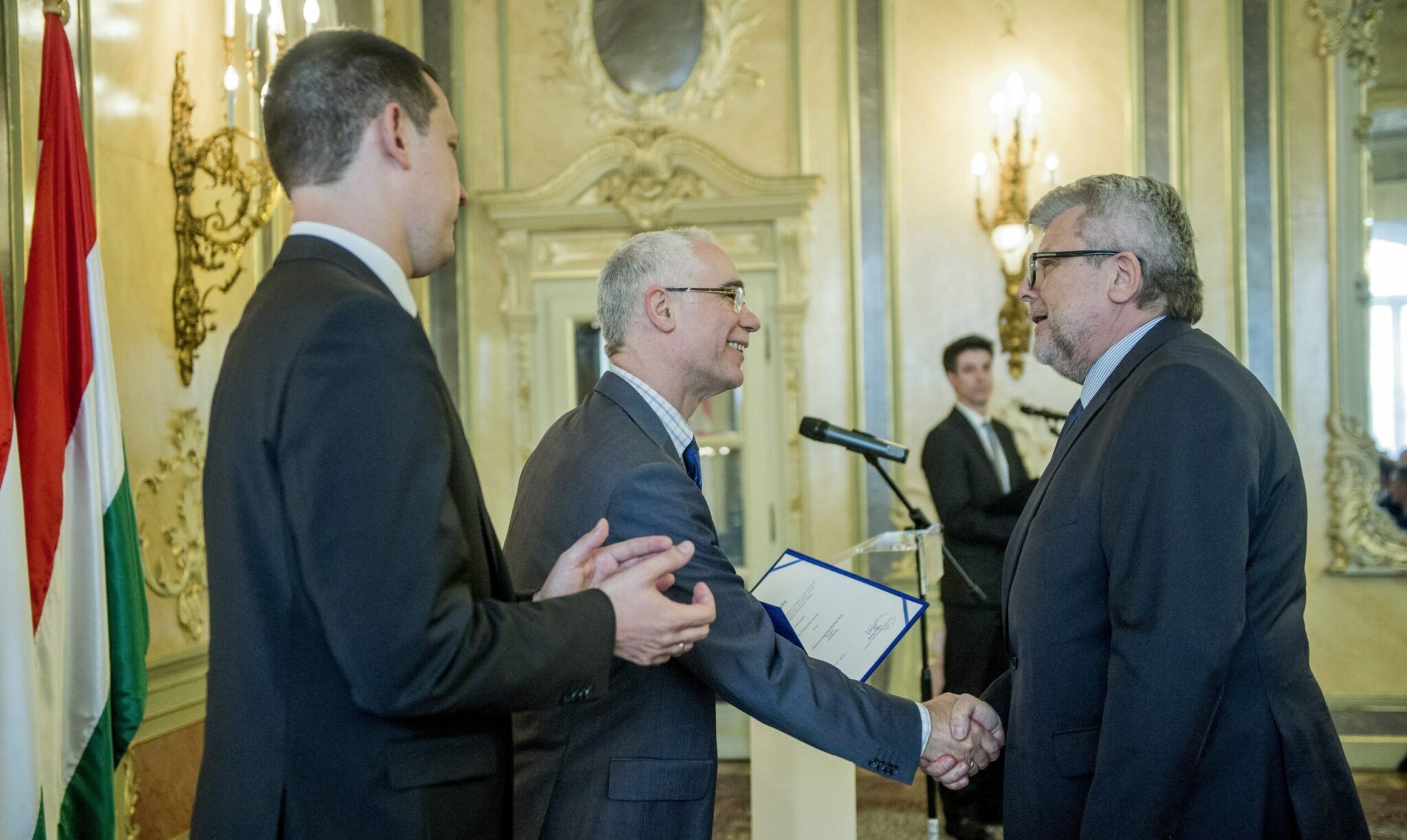
Zoltán Balog, Minister of Human Resources presents the letter of appointment of the President of the National Cooperation Fund Council to László Csizmadia on 7 April 2016. (photo by MTI/Tibor Illyés)
After six years of serving as a minister, Zoltán Balog withdrew from politics in 2018, but only partially – he remained the leader of the Fidesz party foundation. In early November 2020, he was elected as the bishop of the Transdanubian Diocese of the Hungarian Reformed Church, which perhaps is not coincidental considering that the Fidesz foundation, under his leadership, regularly funded this diocese and other Reformed organizations.
In January 2021, Balog Zoltán resigned from the leadership of the party foundation when he was inaugurated as bishop. A month later, in February 2021, the newly composed synod of the Hungarian Reformed Church elected the former Minister of Human Capacities as the spiritual leader of the church.
Afterwards, CÖF felt that it was time for reciprocation and that Balog was worthy of their recognition: in June 2021, they awarded the Spirit Defender Prize to Balog. The award was presented to him by László Csizmadia (in the cover image), introduced by legal advisor Zoltán Lomniczi Jr., who performed a little song and dance for the honors.
“Reverend Bishop, your life so far carries the message to us that it is indeed possible to be both Christian and enlightened, as well as Hungarian and respectful of traditions, and by embracing our national characteristics and protecting the interests of the homeland, we can proudly find our place in a strong Europe of nations,” said Lominczi. “Your fulfilled career path also suggests to us that it is possible to serve both the individual and the larger community at the same time; because this noble path, which has always helped and continues to help our sense of belonging to both the narrower and wider community, is a duty of humble service.”
The organization’s ties to the ruling party are not only evidenced by the former Fidesz Minister’s award, but also by the presence of Judit Varga, the Minister of Justice at the time, who was at the event. According to Varga, “There has never been such a need for intellectual defense as there is today.”
The Minister regularly shared calls for the Peace March on her Facebook page, just like other politicians affiliated with the ruling party. Nevertheless, it continues to operate cheerfully with various state support and undisclosed donations. Hurray for continuity, if for little else.
Translated by Vanda Mayer. The original, Hungarian version of this story was written by Katalin Erdélyi and can be found here.
